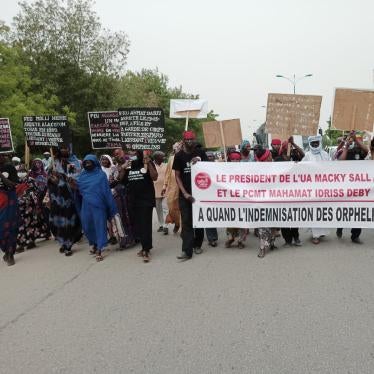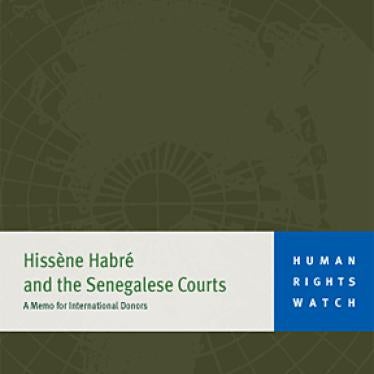The former Chadian dictator known as 'Africa's Pinochet' has been indicted by Belgium to face charges of crimes against humanity in a landmark case that strikes a major blow for human rights. The extradition from Senegal of former president Hissène Habré on an international arrest warrant would mark the culmination of years of efforts by a human rights organisation to bring him to justice.
The former Chadian dictator known as 'Africa's Pinochet' has been indicted by Belgium to face charges of crimes against humanity in a landmark case that strikes a major blow for human rights.
The extradition from Senegal of former president Hissène Habré on an international arrest warrant would mark the culmination of years of efforts by a human rights organisation to bring him to justice.
Mr Habré is not expected to escape extradition as Augusto Pinochet did when he persuaded the British law lords that he was 'too ill' to stand trial in 1998 to face charges issued by a Spanish judge. Habré's extradition would send a powerful message to dictators that they will be held accountable for abuse.
The Belgian justice ministry announced yesterday that the warrant had been issued on 19 September. If, as expected, the Senegalese authorities comply, Mr Habré would become the first former dictator to be extradited by a third country to stand trial for human rights atrocities.
A commission set up in Chad in 1992 accused Mr Habré's regime of 40,000 political killings and 200,000 cases of torture during his eight years in power, before he was deposed in 1990. He is wanted by Belgium for crimes against humanity, torture, war crimes and other human rights crimes.
'This is a great day,' said Reed Brody, the Human Rights Watch official who has co-ordinated the complaints of Chadian victims. 'This is a great day for Habré's thousands of victims and a milestone in the fight to hold the perpetrators of atrocities accountable for their crimes.'
The arrest warrant was issued under Belgium's 'universal jurisdiction' which had been invoked unsuccessfully to try the Israeli Prime Minister Ariel Sharon for war crimes over his role in the massacres at the Shatila and Sabra refugee camps in Lebanon.
That controversial law, which allowed for prosecutions for crimes against humanity wherever they were committed, was repealed in July 2003 under American pressure. But because three of the 21 Chadian plaintiffs have Belgian nationality, and the investigation by the Belgian magistrate Daniel Fransen had
already begun in Chad, the Habré case was allowed to proceed under the Belgian
law.
Mr Habré was the darling of America and France, because Chad was seen as a buttress against Libya. But even before coming to power, he had shown signs of extreme brutality: his rebels kidnapped a French anthropologist, Françoise Claustre, in 1974 and then murdered the man the French government sent to negotiate her release.
He has been under virtual house arrest for the past five years in the Senegalese capital Dakar, where he was indicted after the Chadian Truth Commission accused his regime of political murders and systematic torture.
But the process was halted when the Senegalese courts ruled in 2001 that he could not be tried in the country because his alleged crimes had not been committed there. Yet even before the Senegalese decision, an approach had been made to Belgium.
The Senegalese government, which did not comment yesterday, has kept a close eye on the former president and has not allowed him to escape to a sympathetic country.
The Belgian request now goes before the Dakar appeals court, where Mr Habré may challenge his extradition. If the court rules that it can go ahead, the Senegalese President, Abdoulaye Wade, must sign the extradition decree.
Mr Habré, now 63, has not been sent back to Chad for trial because Ndjamena never sought his extradition. Human Rights Watch says that given Chad's human rights record, there is a serious risk that Mr Habré would be mistreated or even killed. In addition, Chad's weak judiciary is not in a position to guarantee a fair trial.
'The indictment of Habré shows how the Belgian law was supposed to work,' said Georges-Henri Beauthier, a Brussels lawyer representing the victims. 'Habré's crimes are serious and are well-documented.'


